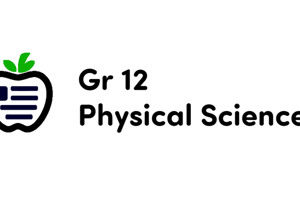Podcast
Questions and Answers
What is the definition of activation energy?
What is the definition of activation energy?
- The energy released when a reaction occurs.
- The energy stored in chemical bonds.
- The energy needed for particles to collide effectively.
- The minimum energy required for a reaction to occur. (correct)
Which statement is true regarding effective collisions?
Which statement is true regarding effective collisions?
- They need sufficient energy and proper orientation. (correct)
- They occur without any energy transfer.
- They require low energy and random particle orientation.
- They require high temperature conditions only.
How does activation energy affect reaction rates?
How does activation energy affect reaction rates?
- Higher activation energy always increases the reaction rate.
- Higher activation energy slows down the reaction rate. (correct)
- Lower activation energy decreases the likelihood of an effective collision.
- Activation energy has no impact on reaction kinetics.
What does the transition state represent in an energy vs. reaction progress diagram?
What does the transition state represent in an energy vs. reaction progress diagram?
What happens if the particle energy is below the activation energy?
What happens if the particle energy is below the activation energy?
Flashcards
Activation Energy
Activation Energy
The minimum energy required for a collision to be effective and start a reaction. This energy must be above the average kinetic energy of the reacting particles.
Collision Theory
Collision Theory
The theory that reactions occur due to collisions between molecules. Not all collisions are effective, only those with sufficient energy and proper orientation.
Transition State
Transition State
A state where the reactants are breaking old bonds and forming new bonds, but haven't yet become products.
Enthalpy Change
Enthalpy Change
Signup and view all the flashcards
Reaction Rate and Activation Energy
Reaction Rate and Activation Energy
Signup and view all the flashcards
Study Notes
Bond Energy and Enthalpy of Reaction
- Bond energy is the energy needed to break a bond
- Enthalpy (ΔH°) of reaction can be calculated by subtracting the sum of bond energies of products from the sum of bond energies of reactants
- Results from calculations using bond energy data may differ from experimental values
Activation Energy
- Chemical reactions involve breaking and forming chemical bonds, requiring energy changes.
- Collision theory explains reaction kinetics, stating that colliding particles need sufficient energy and correct orientation for effective bonding.
- An effective collision is when particles' energy exceeds the repulsion between reacting particles and correct orientation for bonding exists.
- Activation energy is the minimum energy required for an effective collision; no reaction occurs if energy is less.
- Reaction rate depends on activation energy
- A reaction diagram (figure 8.1) illustrates this concept: the activation energy is the energy barrier reactants must overcome to proceed to the transition state for product formation.
Studying That Suits You
Use AI to generate personalized quizzes and flashcards to suit your learning preferences.
Description
This quiz covers the concepts of bond energy and enthalpy of reaction, detailing how to calculate reaction enthalpy and its relation to bond energies. Additionally, it explores activation energy and collision theory, emphasizing their role in chemical reactions and reaction rates. Test your understanding of these key topics in chemistry!




